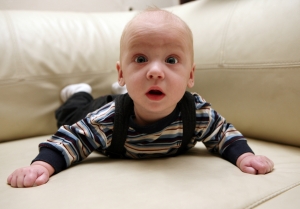The Hep-B Vaccine and your kids
Hepatitis B is a devastating disease which can be a life long battle for it’s victims. Hep-B’s is a blood borne illness primarily spread through sexual contact, sharing needles, and coming into contact with an infected person’s blood. Medical workers are at high risk for exposure to this disease, as are drug users and those who participate in risky sexual behaviors. But newborns? The CDC currently recommends that 100% of newborn are vaccinated for Hep-B, even though there is little evidence that the vaccination would prevent exposure from an infected mother. And NO evidence that it would provide long-term immunity.
But they still want you to vaccinate your child against it. Why? The short answer, it’s easier to give every newborn a vaccination than to test every mother for Hep-B. It’s also far more profitable. SO, rather than requiring expectant mothers to be tested, the want you to inject your newborn with a completely untested vaccine. On the hopes that it might prevent transmission in the minuscule percentage of mothers who may be infected. Until 2013 they didn’t even perform studies on newborns who actually were as risk from infected mothers, to dubious results. You can read more about the relative ineffectiveness of the vaccine here.
So what does all this mean? This means, that although the infection rate of newborns is approximately .001%, and the vaccine does not clearly prevent infection, the CDC still wants all newborns to be inoculated. Does that make sense to you? Now let’s consider this.
The vaccine injury rate for this vaccine is closer to 1%. That doesn’t seem like a lot. But, consider that we are injuring 1% to possibly save .001%?
And some of these consequences can be serious. Can be real. Can be life-long. Can be fatal. Kids like Ian, Timmy and Lyla Rose. Is it really worth it? Are we over vaccinating kids, with dangerous, untested vaccines, just because we can? Because it’s profitable. Because it’s easier than doing the work to prevent the transmission other ways. These are newborns, with fragile immune systems. We are injecting them with chemicals, hours after their birth, to prevent a disease which is not highly communicable, which a fraction of mothers have, and with a vaccine that has never been studied. The manufacturer stated themselves that they had not studied the vaccine’s effects on newborns, when asked for evidence on vaccine safety for newborns, they stated ”We have none. Our studies were done on 5- and 10-year-olds.” — The Congressional Quarterly, August 25, 2000, pg. 647
Should we really be giving the vaccine to your children?

